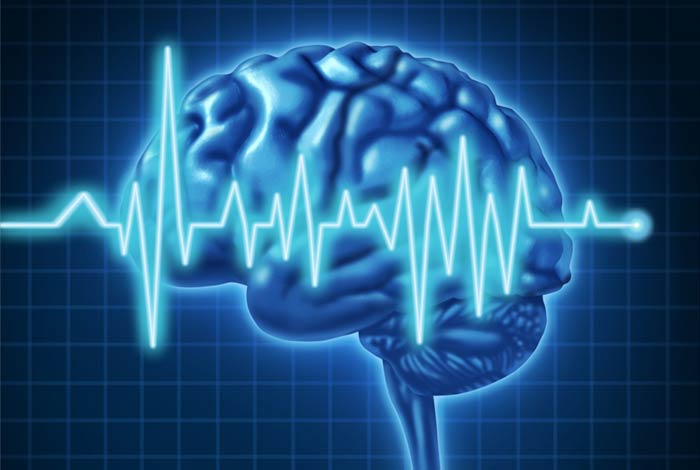
Seizures and Its Most Common Drug List

Seizure is a condition marked by loss of control, which is usually, but not always accompanied by loss of consciousness and convulsions. Convulsions are abnormal shaky movements of the body. From just a staring spell to unconsciousness, seizure can produce varied symptoms.
A notable fact is that seizure and epilepsy are not the same. Seizure is a single, isolated episode. On the other hand, two or more episodes or a tendency to develop repeated seizure episodes, is known as epilepsy.
However, epilepsy is the most common cause of seizure and such seizure episodes are called epileptic seizures. Non-epileptic seizures are caused by other factors, like brain defect at birth, infection of brain, stroke , head injury, certain medications, bleeding of brain, insomnia, high fever, etc. Other factors like family history of seizures, alcoholism and drug abuse, puts a person at a high risk of developing seizures.
Epileptic seizures usually arise due to abnormality in communication pathway of brain cells, causing abnormal movements and behavior. If the seizure activity starts in one localized area of brain, it is known as focal or partial seizure. If the seizure activity begins on both sides of brain, it is known as generalized seizure. However, focal seizure may progress to a generalized seizure.
A seizure episode can pose several complications, like serious injury, accidents, problems in pregnancy and even death. A seizure episode that lasts longer than 5 minutes is a medical emergency and must be treated promptly.
The treatment of seizures includes, medications and other alternative methods.
Symptoms
The symptoms of seizures vary from mild to severe. Some of the symptoms of a seizure episode are as follows.
- Temporary confusion
- A staring spell
- Loss of awareness or consciousness
- Frothing or drooling of mouth
- Clenching teeth
- Uncontrollable muscle spasms
- Tongue biting
- Sudden rapid movements of eye
- Loss of bladder or bowel control
- Cognitive or emotional signs, like Deja vu, anxiety and fear
Treatment
The aim of treatment of seizure patients is to prevent future seizure episodes, while dealing with minimum side-effects of the therapy. Anti-seizure or anti-epileptic medications form the chief therapy in these patients.
However, patients not responding to medications, may require surgery and nerve stimulation. Also, these patients are recommended to consume a ketogenic diet, which is high in fat and low in carbohydrates.
Various anti-epileptic medications used in the treatment of seizures are described below.
1. Barbiturate
Gamma-Aminobutyric acid (GABA) is a vital brain chemical, which depresses the brain. It does so by keeping the chloride ion channels open for a longer time. Barbiturates act on specific site of brain and potentiate the action of GABA, thus depressing the central nervous system. However, it must be noted that when given at a higher dose, barbiturates directly act like GABA and prolong the opening of chloride ion channels of brain. This action is known as GABA- mimetic effect and is exhibited by barbiturates.
Through this action, barbiturates lower the excitability of brain and prevent the onset of seizures.
Available as: Oral preparations
A. Primidone
US-FDA Status: Approved for Seizures
Availability: Prescription only
Generic name: primidone
Brand name: Mysoline tablet
Side-effects: Unsteadiness, cough, chills, sore throat, fever, skin rash, pale skin, shortness of breath
Indicated in Pregnancy: Usually contraindicated
Alcohol Content: Absent
2. Benzodiazepines (BZDs)
This group of drugs acts on specific receptors of brain and reduces the excitability of brain. Similar to barbiturates, BZDs also potentiate the action of GABA, thus causing depression of central nervous system. However, unlike barbiturates, BZDs do not alter the opening time of chloride ion channels. Instead, BZDs act on GABA receptors to alter the frequency of opening of chloride channels of brain. Also, BZDs enhance the binding of GABA to the brain receptors. This action is known as GABA- facilitating action.
This CNS-depressing action of BZDs aids in preventing the onset of seizure episodes.
Available as: Oral preparations and Injectable preparations
A. Diazepam
Diazepam Oral
US-FDA Status: Approved for Seizures
Availability: Prescription only
Generic name: diazepam (oral)
Brand name: Valium
Side-effects: Problem with muscle control or coordination, trembling, unsteady walk
Indicated in Pregnancy: Usually contraindicated
Alcohol Content: Absent
Diazepam Injection
US-FDA Status: Unapproved for Seizures
Generic name: diazepam (injection)
Brand name: Valium
Side-effects: Same as seen with oral diazepam
Indicated in Pregnancy: Usually contraindicated
Alcohol Content: Absent
B. Alprazolam
US-FDA Status: Approved for Seizures
Availability: Prescription only
Generic name: alprazolam (oral)
Brand name: Xanax
Side-effects: Speech alteration, unsteadiness, drowsiness, forgetfulness, irritability
Indicated in Pregnancy: Can cause congenital fetal malformation when consumed in first trimester
Alcohol Content: Absent
C. Chlordiazepoxide
Chlordiazepoxide Oral
US-FDA Status: Approved for Seizures
Availability: Prescription only
Generic name: chlordiazepoxide hydrochloride (oral)
Brand name: Librium
Side-effects: Mood changes, unsteadiness, fainting, difficulty in muscle coordination
Indicated in Pregnancy: Can cause congenital fetal malformation when consumed in first trimester
Alcohol Content: Absent
Chlordiazepoxide Injection
US-FDA Status: Unapproved for Seizures
Generic name: chlordiazepoxide hydrochloride (injection)
Brand name: Librium
Side-effects: Same as seen with oral chlordiazepoxide
Indicated in Pregnancy: Can cause congenital fetal malformation when consumed in first trimester
Alcohol Content: Absent
D. Lorazepam
US-FDA Status: Approved for Seizures
Availability: Prescription only
Generic name: lorazepam (oral and injection)
Brand name: Ativan (oral), lorazepam (injection)
Side-effects: Drowsiness, agitation, abdominal pain
Indicated in Pregnancy: Usually contraindicated, due to its potential to cause neonatal flaccidity, feeding and respiratory difficulties.
Alcohol Content: Absent
E. Oxazepam
US-FDA Status: Unapproved for Seizures
Generic name: oxazepam (oral)
Brand name: Oxazepam
Side-effects: Black tarry stools, chest pains, abdominal pain, chills, dark urine, fainting
Indicated in Pregnancy: Usually contraindicated
Alcohol Content: Absent
3. Hydantoin
A seizure episode is marked by frequent discharges by brain cells. This is caused by activation of voltage-sensitive sodium ion channels of brain. Hydantoin keeps the sodium ion channels in the inactivated state for longer duration, thus reducing the excitatory discharges by brain cells. This further reduces the frequency of seizure episodes.
Available as: Oral preparations and Injectable preparations
A. Phenytoin
US-FDA Status: Approved for Seizures
Availability: Prescription
Generic name: phenytoin sodium
Brand name: Dilantin capsule
Side-effects: Constipation, confusion, dizziness, depression, fatigue, tremor, mood changes, irritability, restlessness
Indicated in Pregnancy: Usually contraindicated
Alcohol Content: Absent
B. Fosphenytoin
US-FDA Status: Approved for Seizures
Availability: Prescription
Generic name: fosphenytoin sodium
Brand name: Cerebyx injection
Side-effects: Drowsiness, dizziness, burning sensation or pain on the injection site, nausea
Indicated in Pregnancy: Usually contraindicated
Alcohol Content: Absent
4. Iminostilbene
This group of drugs acts quite similar to hydantoin. They bind to inactivated voltage-gated sodium ion channels and prevent their activation. Hence, iminostilbenes reduce the frequency of seizure episodes.
Available as: Oral preparations and Injectable preparations
A. Carbamazepine
US-FDA Status: Approved for Seizures
Availability: Prescription only
Generic name: carbamazepine
Brand name: Tegretol (oral), Carnevix (injection)
Side-effects: Continuous back and forth eye movement, double vision, blurred vision
Indicated in Pregnancy: Usually contraindicated
Alcohol Content: Absent
B. Oxcarbazepine
US-FDA Status: Approved for Seizures
Availability: Prescription only
Generic name: oxcarbazepine
Brand name: Trileptal tablet
Side-effects: Changes in vision, dizziness, depression, fever, cough, sore throat, sneezing, unsteadiness
Indicated in Pregnancy: Usually contraindicated, but can be given if benefits outweigh fetal risk
Alcohol Content: Absent
5. Succinimide
Succinimide does not potentiate GABA, rather blocks a specific brain channel, called voltage-gated T-type calcium channel. This channel opens, permitting inflow of calcium ion in the brain cells, causing them to undergo excitation and evoke a seizure episode. By blocking this channel, succinimide raises the threshold of seizures and prevents the onset of seizure episodes.
However, this drug is specifically used in the treatment of absence seizures.
Available as: Oral preparations
A. Ethosuximide
US-FDA Status: Approved for Seizures
Availability: Prescription only
Generic name: ethosuximide
Brand name: Zarontin capsule
Side-effects: Irritability, changes in behavior, lack of appeti
te, tiredness, difficulty in sleeping, mood changes
Indicated in Pregnancy: Usually contraindicated, but can be given if benefits outweigh fetal risk
Alcohol Content: Absent
6. Aliphatic Carboxylic Acid
This group of drugs act by following 3 mechanisms.
- It acts similar to hydantoin, i.e., it keeping the sodium ion channels in the inactivated state for a longer duration
- A succinimide-like action, i.e., blocking voltage-gated T-type calcium channels
- Enhances the action of GABA, by boosting its synthesis and blocking its degradation.
Through these actions, aliphatic carboxylic acid depresses the nervous system and prevents seizure episodes.
Available as: Oral preparations and Injectable preparations
A. Valproic Acid (Sodium Valproate)
US-FDA Status: Approved for Seizures
Availability: Prescription only
Generic name: valproic acid (oral), valproate sodium (injection)
Brand name: Depakene (oral), Depacon (injection)
Side-effects: Black tarry stools, confusion, bleeding gums, blood in urine or stools, bloating, cough or hoarseness
Indicated in Pregnancy: Usually contraindicated
Alcohol Content: Absent
B. Divalproex (Semisodium Valproate)
US-FDA Status: Approved for Seizures
Availability: Prescription only
Generic name: divalproex (oral)
Brand name: Depakote
Side-effects: Black tarry stools, confusion, bleeding gums, blood in urine or stools, bloating, cough or hoarseness
Indicated in Pregnancy: Usually contraindicated
Alcohol Content: Absent
7. Phenyl triazine
Phenyl triazine acts by stabilizing the membrane of brain cells, by acting on sodium ion channels and release of certain brain chemicals. It prolongs the inactivated state of sodium ion channels, thus reducing the excitability of brain cells. Also, it may block the sodium ion channels, which further blocks the release of excitatory brain chemicals, namely glutamate and aspartate. By doing so, phenyl triazine prevents the onset of seizure episodes.
Available as: Oral preparations and Injectable preparations
A. Lamotrigine
US-FDA Status: Approved for Seizures
Availability: Prescription only
Generic name: lamotrigine (oral)
Brand name: Lamictal
Side-effects: Unsteadiness, blurred vision, skin rash, double vision, poor coordination
Indicated in Pregnancy: Usually contraindicated
Alcohol Content: Absent
8. Cyclic GABA Analogues
This group of drugs does not act on GABA receptor but enhances the release of GABA. By doing so, it depresses the nervous system and prevents seizure episodes.
Available as: Oral preparations
A. Gabapentin
US-FDA Status: Approved for Seizures
Availability: Prescription only
Generic name: gabapentin
Brand name: Neurontin capsule
Side-effects: Anxiety, unsteadiness, depression, inability to concentrate, changing moods, restlessness, chest pain, cough, chills
Indicated in Pregnancy: Usually contraindicated, but can be given if benfits outweigh fetal risk
Alcohol Content: Absent
B. Pregabalin
US-FDA Status: Approved for Seizures
Availability: Prescription only
Generic name: pregabalin
Brand name: Lyrica capsule
Side-effects: Chest tightness, difficulty in breathing, dizziness, diarrhea, skin rash, itching, sore throat, muscle pain
Indicated in Pregnancy: Usually contraindicated, but can be given if benefits outweigh fetal risk
Alcohol Content: Absent
OTC
There are no over-the-counter drugs available for seizures, as they carry many serious side-effects. Consult your physician immediately if you are suspecting seizures. Self-medication is not recommended.





